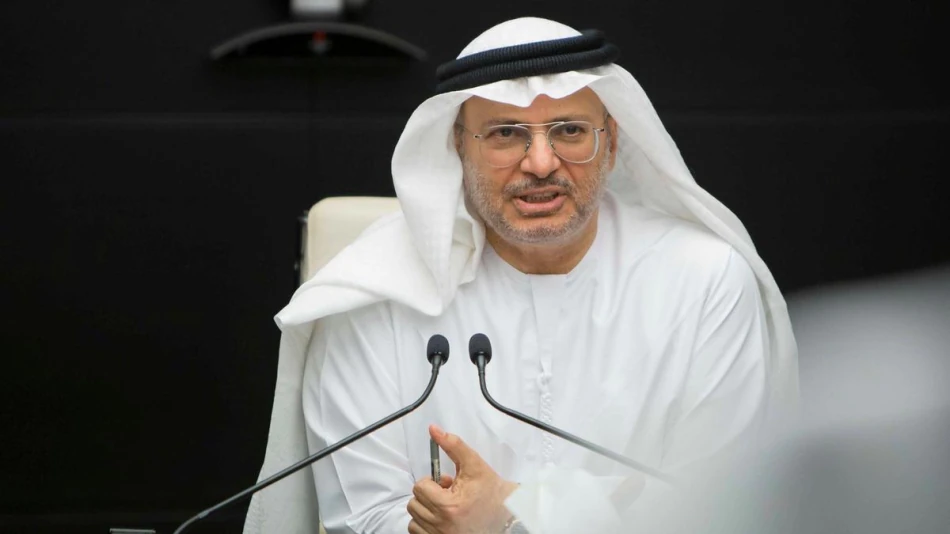
UAE's Stance on Sudan: Ceasefire, Humanitarian Aid, and Civilian Rule
UAE Diplomatic Advisor Challenges Sudan's Warring Factions to Justify Continued Fighting
Dr. Anwar Gargash, diplomatic advisor to the UAE President, has issued a pointed challenge to Sudan's warring military factions, questioning their resistance to an immediate ceasefire that would prioritize humanitarian aid and pave the way for civilian governance. His statement reflects growing international frustration with the prolonged conflict that has devastated Sudan since April 2023.
Direct Appeal to Military Leaders
In a statement posted on X (formerly Twitter), Gargash directly addressed both the Sudanese Armed Forces and the paramilitary Rapid Support Forces, asking: "Where is the problem with an approach that seeks an immediate ceasefire in a war that civilians are suffering from and that is tearing Sudan apart—an approach whose priority is humanitarian relief and a path that leads to independent civilian rule?"
The unusually direct language signals the UAE's growing impatience with the conflict's trajectory and represents a shift from traditional diplomatic rhetoric to more confrontational messaging.
UAE's Strategic Position in Sudan Crisis
Regional Stability Concerns
The UAE's vocal stance reflects broader concerns about regional stability in the Horn of Africa. Sudan's strategic location along the Red Sea shipping corridor and its borders with seven African nations make its internal collapse a significant threat to Gulf trade routes and energy security.
Unlike some regional powers that have been accused of backing specific factions, the UAE's public position emphasizes humanitarian priorities over military solutions—a stance that aligns with its broader diplomatic strategy of positioning itself as a regional mediator.
Humanitarian Leverage
Gargash's emphasis on humanitarian relief reflects the UAE's significant role in regional aid distribution. The country has historically used humanitarian assistance as a diplomatic tool, most notably in Yemen and Somalia, building influence while addressing genuine crises.
International Coalition Building
By stating that the UAE's position reflects that of "most countries in the world," Gargash is attempting to isolate Sudan's military leaders diplomatically. This approach mirrors successful international pressure campaigns that have forced ceasefire agreements in other conflicts.
The timing is significant, as it comes amid renewed diplomatic efforts by the African Union and the Intergovernmental Authority on Development (IGAD) to broker talks between the warring factions.
Market and Economic Implications
Sudan's continued instability affects regional economic integration projects, particularly those involving Gulf investment in African infrastructure. The UAE has substantial investments in Port Sudan and agricultural projects that remain frozen due to the conflict.
For international investors, the UAE's public pressure campaign suggests growing confidence that diplomatic solutions may gain traction, potentially opening opportunities for post-conflict reconstruction investments.
Diplomatic Calculus
Gargash's statement represents a calculated diplomatic gambit. By framing the question as a moral challenge rather than a political negotiation, the UAE is attempting to shift the narrative burden onto military leaders who must now justify continued fighting to their own populations and international partners.
This approach has proven effective in previous regional conflicts where public pressure complemented private diplomatic negotiations, ultimately forcing compromise solutions that preserved face for all parties while ending active hostilities.
Most Viewed News

 Sara Khaled
Sara Khaled






